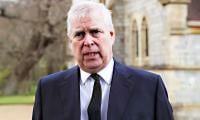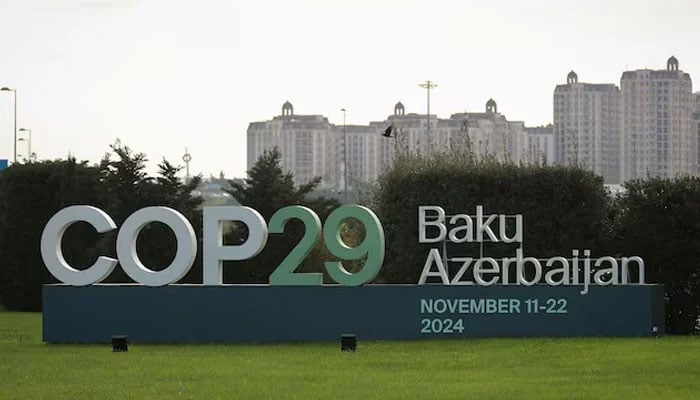COP29: storms, pledges, politics
Heatwaves scorched East Africa and South Asia, while flash floods in Spain took over 220 lives
As the 29th edition of the Conference of Parties (COP29) wrapped up in Baku, the world faced yet another dire warning: 2024 is likely to be the hottest year on record.
Rising air and ocean temperatures have amplified extreme weather events, transforming minor tropical storms into devastating hurricanes like Milton, Helene, and Beryl. Heatwaves scorched East Africa and South Asia, while flash floods in Spain took over 220 lives and caused damages surpassing $10.5 billion. Earlier this week, Storm Bert claimed five lives in the UK. Despite these urgent warnings from nature, global carbon emissions soared to a record 41.6 gigatons this year, leaving only six years to avert irreversible warming beyond the critical 1.5°C threshold.
This sobering reality set the stage for COP29 discussions, focused on tackling unmet commitments from the Paris Agreement, adopted at COP21 in 2015. Key priorities included finalising UN rules under Article 6 to regulate carbon credit trading and advancing financial support from developed to developing nations as mandated by Article 9. Negotiations also aimed to conclude the ‘New Collective Quantified Goal (NCQG)’ on climate finance, as agreed at COP26 in Glasgow in 2021.
The discussion on the climate finance needs of developing countries took a new trajectory after the UN’s Independent High-Level Expert Group on Climate Finance released its report on the third day of COP29. The report estimated that developing countries (excluding China) will require approximately $1 trillion per year by 2030 and $1.3 trillion annually by 2035 to deliver the Paris Agreement. This report confirmed that, without sufficient finance, the consequences of climate change would be catastrophic – supporting the idea that climate finance is not charity but an investment in global stability and a liveable future.
Against this backdrop, the outcomes of COP29 are a mix of hope and frustration. The approval of rules for trading carbon credits under the Paris Agreement, including Internationally Transferred Mitigation Outcomes, on the opening day signalled progress towards operationalising long-awaited mechanisms.
However, this optimism is tempered by significant shortcomings. The approved rules lack clear timelines, robust transparency frameworks, and enforceable compliance mechanisms, leaving critical gaps in their implementation. Omitting provisions from the draft text that ensure carbon captured from the atmosphere is securely stored for centuries also undermines the potential of these mechanisms to create lasting climate solutions, raising doubts about their long-term effectiveness.
Baku marked a pivotal moment in climate finance discussions. For the first time in COP history, the focus shifted from emission levels to the funding needed to reduce or contain those emissions. After nine years of negotiations, an amount for climate finance requirements for developing nations was agreed upon, as mandated by Article 9 of the Paris Agreement. Developed countries committed to providing $300 billion annually by 2035 under the NCQG. The agreement also highlights that achieving the total funding goal of $1.3 trillion will require contributions from both public and private sources, not solely from developed nations.
The frustrating reality, however, is that the pledged amount falls far short of what is actually needed and comes with significant limitations. The funding sources are vaguely defined, encompassing a broad range of options such as private investments and multilateral lenders. The agreement also lacks robust mechanisms for transparency and accountability, leaving it vulnerable to political backtracking.
Even if the commitment were adequate, its value is steadily diminishing. The $300 billion pledge is already outdated; adjusted for inflation, its purchasing power will shrink significantly over the next decade. If the average US inflation rate of 2.38 per cent over the past 15 years persists, the pledge will lose 20 per cent of its value by 2035. This reflects a troubling pattern: the $100 billion target set in 2009 for 2020 was not achieved until 2022, and inflation rendered it grossly insufficient by the time it was met. Such financial erosion undermines the trust and urgency essential for effective climate action.
For me, it’s not just about the quantity; the quality of climate finance pledges is equally critical. Developing nations urgently need grants and low-interest loans, not convoluted financial instruments designed to favour private investors. Yet in Baku, this issue was largely sidestepped, with a heavy reliance on ‘mobilised’ multilateral loans and private sector funds. This approach risks deepening inequalities – countries unable to attract private capital or offer high returns may be left behind, perpetuating global disparities. It also burdens some nations with additional debt while sidelining others that lack ‘market-friendly’ environments.
Equally troubling is the absence of clarity around key definitions. Negotiators jokingly remarked that reaching an agreement on what qualifies as ‘appropriate’ climate finance could take until 2100, underscoring the lack of consensus. Without clear guidelines, there is a real danger of misallocating funds, favouring projects that serve donor interests – whether geopolitical or commercial – rather than addressing the urgent needs of vulnerable communities.
Despite its flaws, COP remains a vital platform for climate diplomacy. Over its 30-year history, the conference has fostered global recognition of critical issues like the 1.5 C threshold and loss-and-damage financing. It provides a forum for developing nations to voice their concerns and hold wealthy countries accountable.
However, the outcomes of COP29 also highlight the urgent need for bolder and more effective strategies to address the climate crisis.
Looking ahead to COP30 in Belem, Brazil, in 2025, negotiators must prioritise bridging the gaps exposed in Baku. First, the scale and structure of climate finance must be reimagined to address both current and future needs. Annual funding targets should account for inflation and the escalating costs of climate adaptation and mitigation. Without such adjustments, pledges like the $300 billion commitment risk being rendered inadequate before they are even fulfilled.
Second, the quality of finance must improve significantly. COP29’s reliance on complex financial instruments and private-sector mobilisation failed to provide equitable solutions. Developing nations need accessible funding mechanisms, with grants and low-interest loans forming most commitments. Public finance must play a central role, ensuring that resources reach the most vulnerable nations rather than favouring those deemed ‘market-friendly’.
Third, transparency and accountability mechanisms must be strengthened. The absence of robust tracking systems at COP29 leaves commitments vulnerable to misallocation and political backtracking. Funds must deliver measurable outcomes, and developing countries should have a decisive role in shaping how resources are allocated. This would align with the principle of "common but differentiated responsibilities" enshrined in the Paris Agreement.
Finally, COP30 must address the root causes of the climate crisis, an area where COP29 faltered. The failure to secure a commitment to phase out fossil fuels was a glaring omission. Without a decisive shift away from fossil fuel dependence, no amount of climate financing will suffice to avert catastrophe. Belem offers an opportunity to correct this oversight by championing actionable strategies to transition toward renewable energy on a global scale.
By building on the momentum of COP29 while rectifying its shortcomings, COP30 and the following COPs can catalyse transformative change. The stakes are too high to settle for incremental progress. The world must move decisively toward a future that prioritises sustainability, equity, and accountability in the fight against climate change. Anything less would betray the urgency of the moment and the needs of the planet’s most vulnerable inhabitants.
The writer heads the Sustainable Development Policy Institute (SDPI) and is a member of the COP29 International Advisory Committee. He tweets/posts @abidsuleri
-
 Keith Urban, Nicole Kidman's Daughters Choose One Parent To Side With
Keith Urban, Nicole Kidman's Daughters Choose One Parent To Side With -
 Sarah Ferguson's Hidden Trait Exposed As Expert Dismantles Shadow Side To Her Personality
Sarah Ferguson's Hidden Trait Exposed As Expert Dismantles Shadow Side To Her Personality -
 Sarah Ferguson Backed By Powerful Friends Amid Epstein Fallout
Sarah Ferguson Backed By Powerful Friends Amid Epstein Fallout -
 PINK’s Latest Move Sparks Speculations About Replacing Major Celebrity On Show
PINK’s Latest Move Sparks Speculations About Replacing Major Celebrity On Show -
 Planetary Parade 2026: Here's How To See Six Planets Aligning Today
Planetary Parade 2026: Here's How To See Six Planets Aligning Today -
 Christopher Nolan Reveals Why He's A Fan Of 'Fast & Furious' Movies
Christopher Nolan Reveals Why He's A Fan Of 'Fast & Furious' Movies -
 Ben Affleck Unable To Accept A New Lover Post Jennifer Lopez Divorce As He Still Grieves End Of Bennifer 2.0
Ben Affleck Unable To Accept A New Lover Post Jennifer Lopez Divorce As He Still Grieves End Of Bennifer 2.0 -
 Why Is Demi Moore Being Called Ozempic Victim?
Why Is Demi Moore Being Called Ozempic Victim? -
 Kaley Cuoco Makes Honest Comparison Of 'Big Bang Theory' And 'Charmed' Gigs
Kaley Cuoco Makes Honest Comparison Of 'Big Bang Theory' And 'Charmed' Gigs -
 Robert Picardo Shares Surprising Reaction On Returning To The 'Star Trek' Franchise
Robert Picardo Shares Surprising Reaction On Returning To The 'Star Trek' Franchise -
 AI Feud Deepens As Musk Targets OpenAI Over Safety Concerns
AI Feud Deepens As Musk Targets OpenAI Over Safety Concerns -
 'Paranoid' Andrew Fears Assassination: 'Panic Is Spiralling'
'Paranoid' Andrew Fears Assassination: 'Panic Is Spiralling' -
 Israeli Minister Hits Back At Prince Harry
Israeli Minister Hits Back At Prince Harry -
 Thousands Of Google Accounts Could Be Misused By Hackers: Report
Thousands Of Google Accounts Could Be Misused By Hackers: Report -
 Prince Harry Ignores Question About Andrew
Prince Harry Ignores Question About Andrew -
 Ryan Gosling On What Makes 'Star Wars: Starfighter' Different From Other Franchise Films
Ryan Gosling On What Makes 'Star Wars: Starfighter' Different From Other Franchise Films




